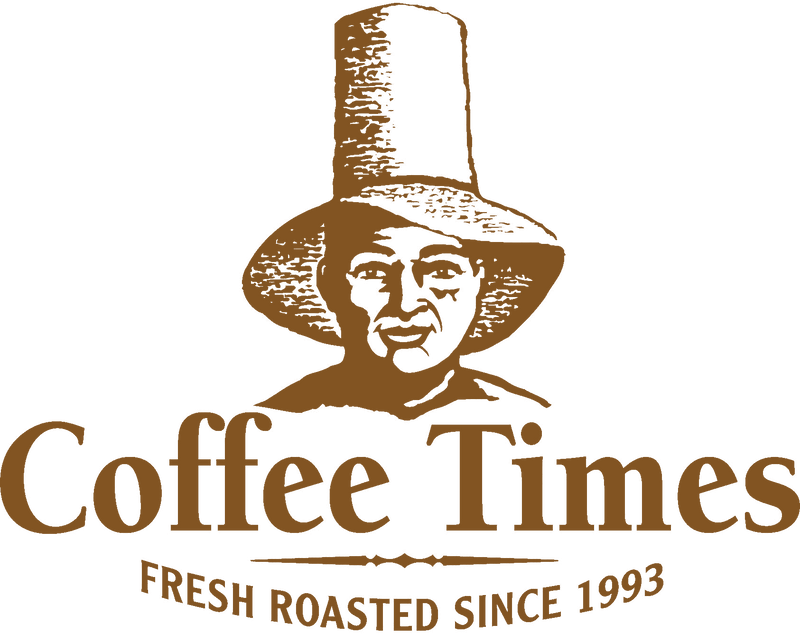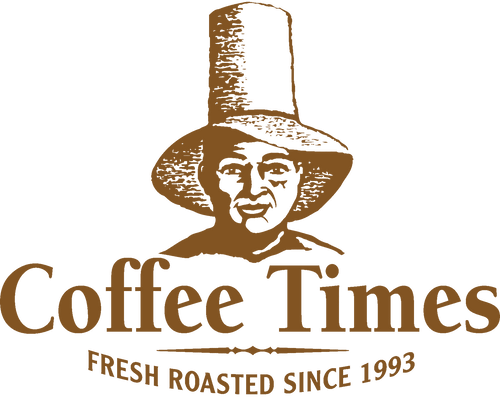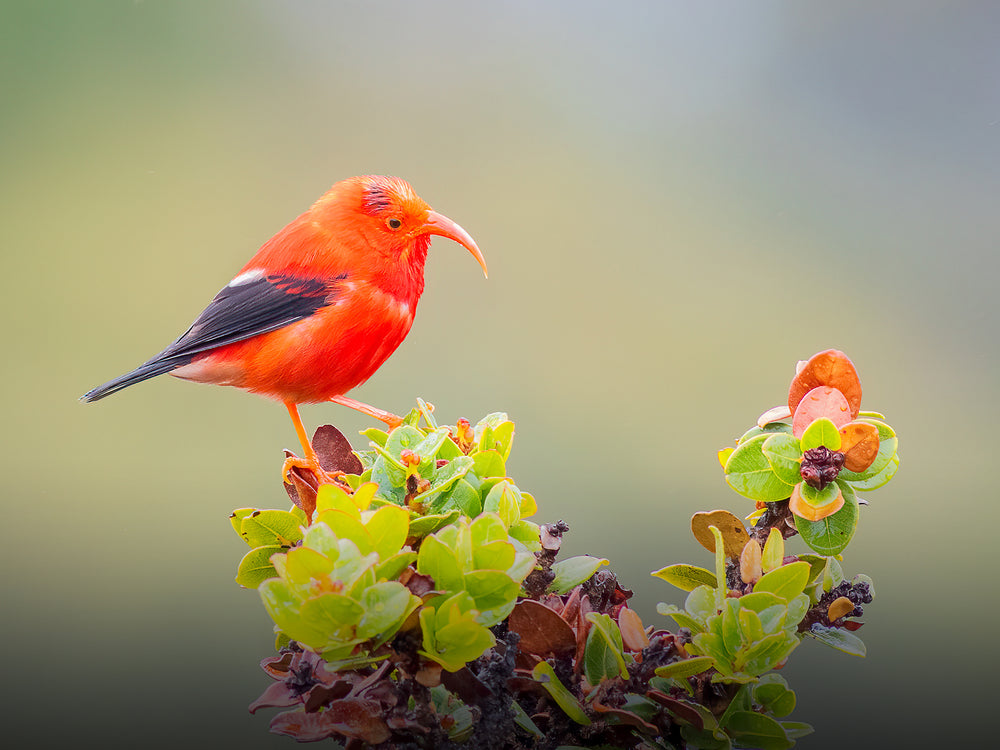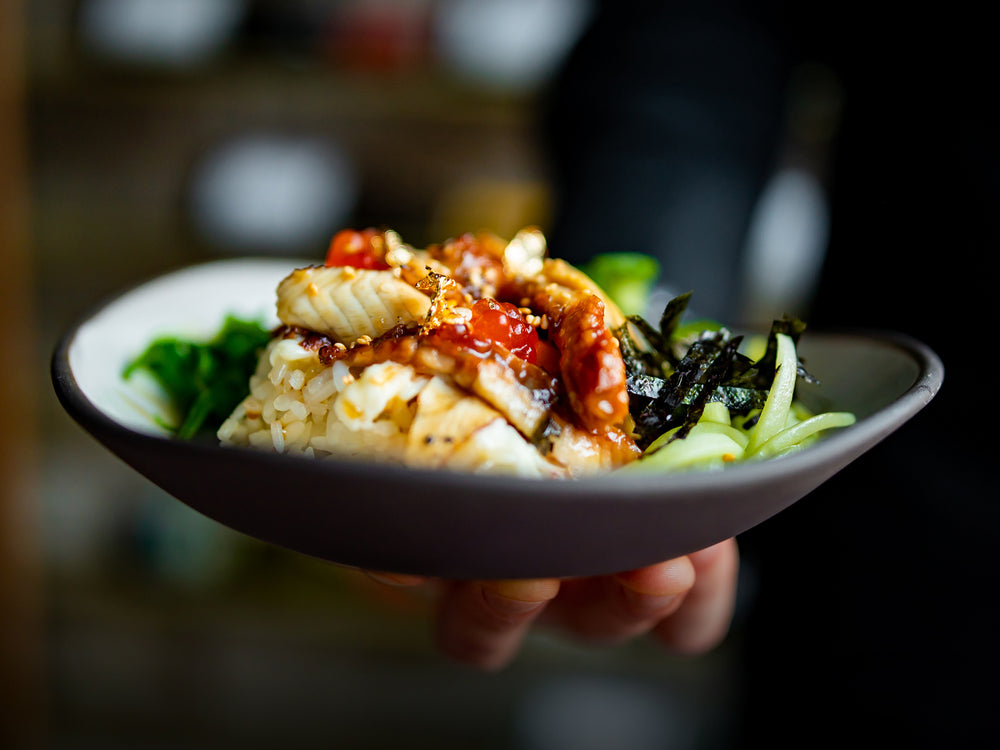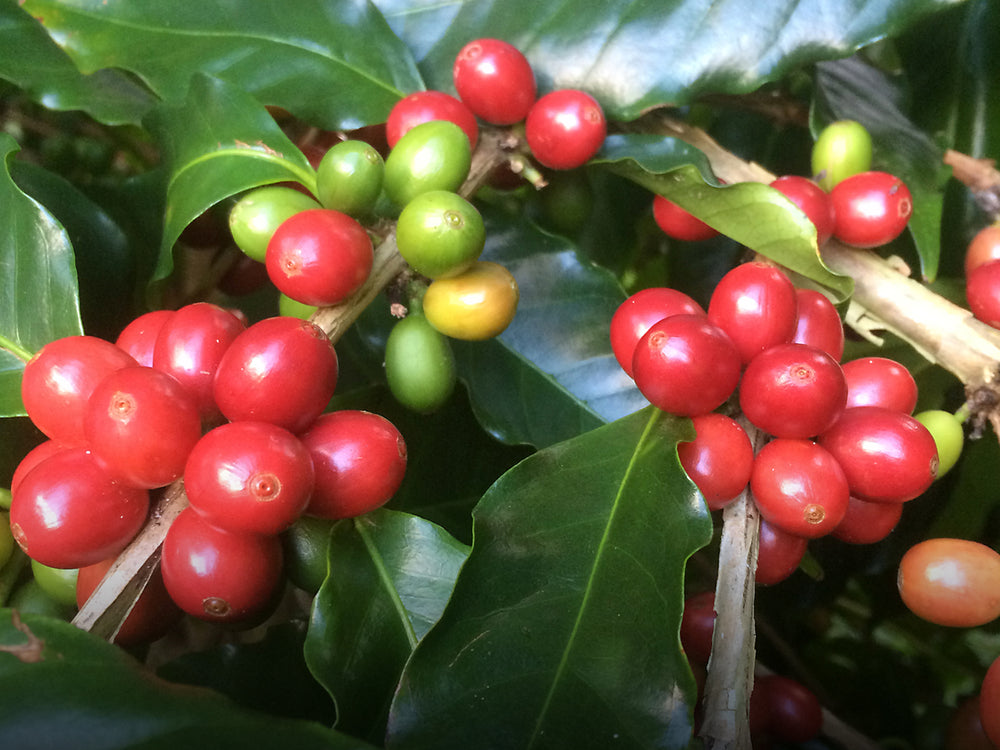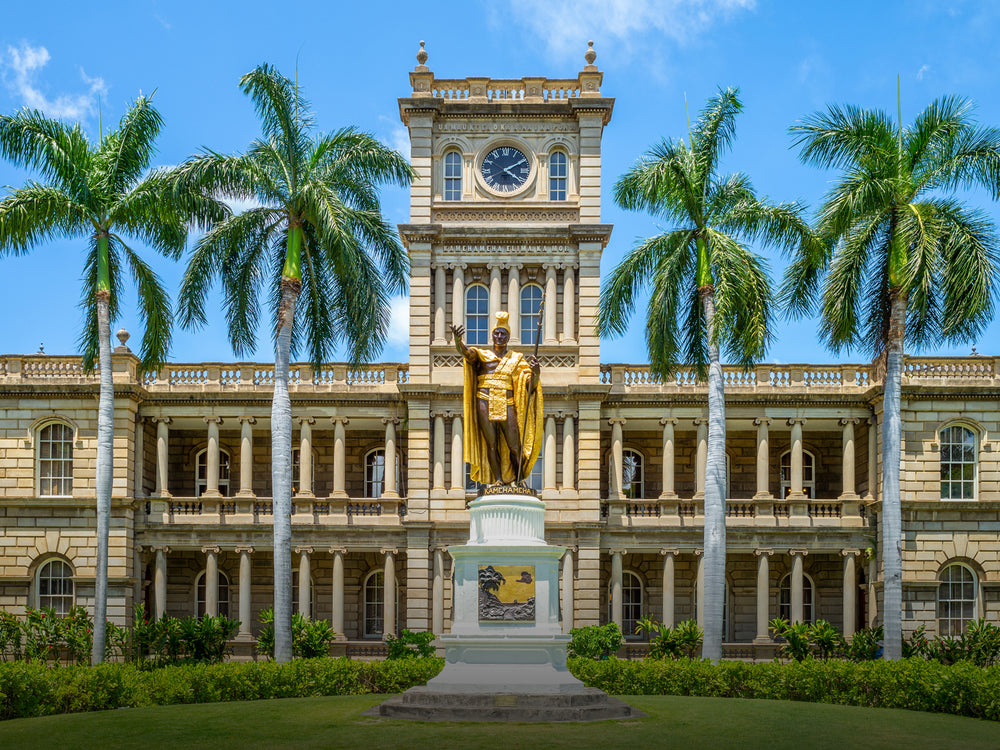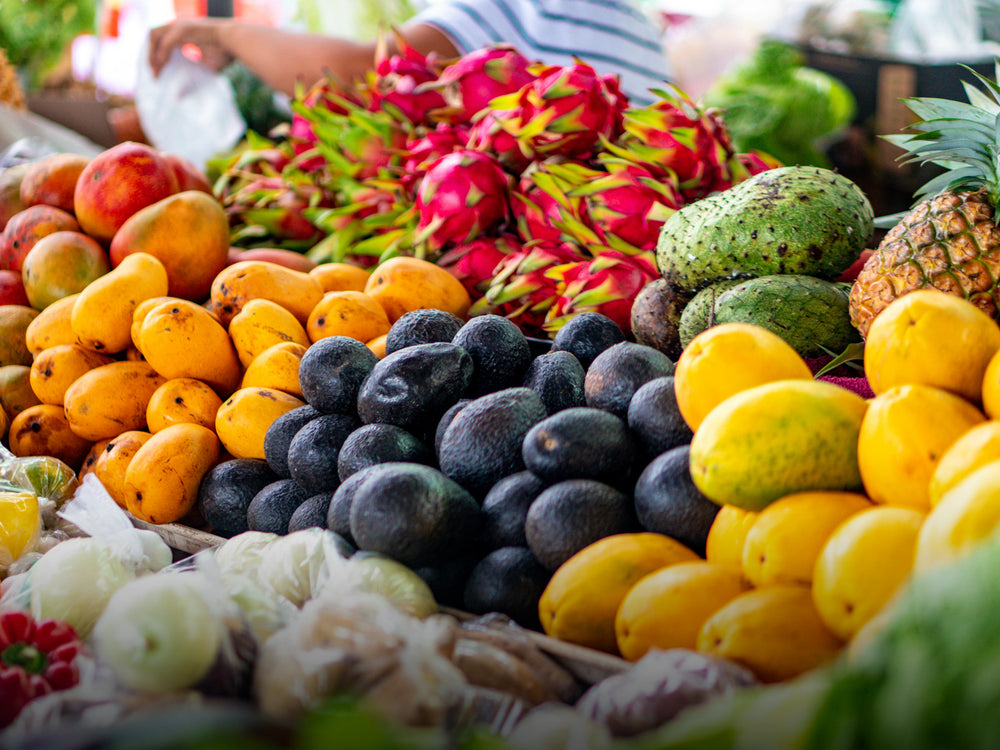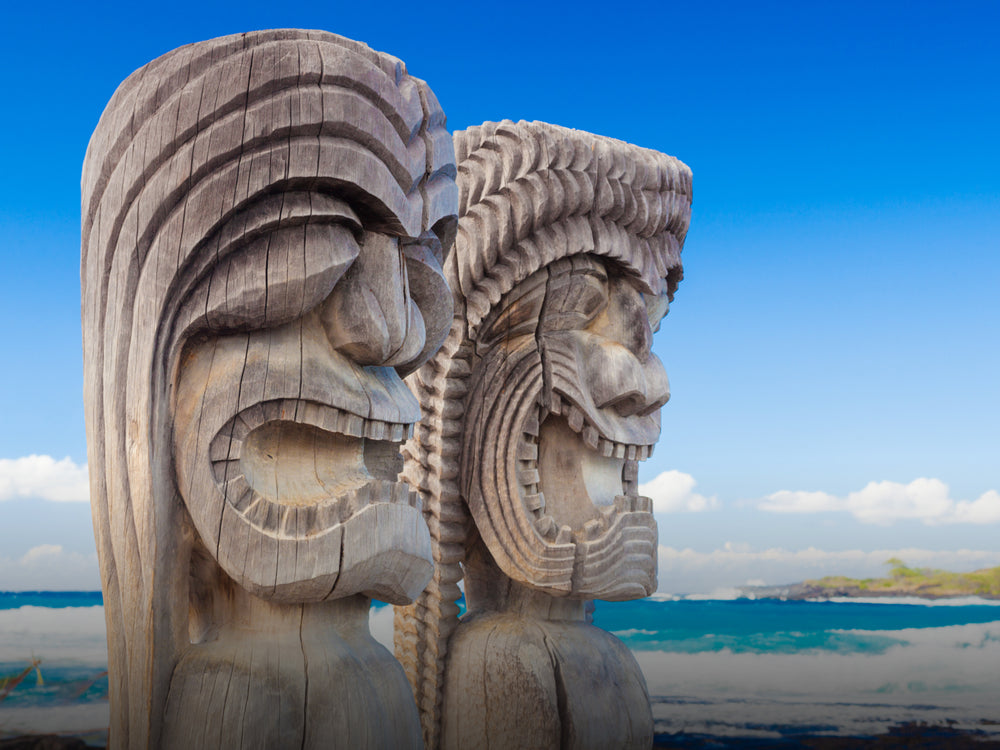Mountain Thunder Shakes Up Kona Coffee Industry
by Les Drent

Trent Bateman in his coffee orchard with his St. Croix sheep and Chinese geese.
Visiting Mountain Thunder Kona Coffee Plantation was like entering paradise. Varying sizes of Kona coffee trees adorned with succulent coffee cherries grew among towering hapu’u ferns and ohia trees. Birds flew overhead, filling the morning air with song. Chinese geese patrolled the plantation, cackling at any intruder, eating the weeds and putting nutrients back into the soil; they were followed by the shyer St. Croix sheep. Any left over weeds were cut down and sent back into the soil as fertilizer. In the distance the azure Pacific Ocean stretched to meet the powder blue of the sky. Mountain Thunder Kona Coffee Plantation is unlike any other Kona coffee farm.
A close up of the organic tea growing in the rainforest at Mountain Thunder Coffee plantation. All exemplify the diversity offered at this organic coffee farm in Kona.
Three years ago, Trent Bateman decided to enter the Kona coffee industry, cultivating a Kona coffee farm at the 3,200-foot elevation in Kaloko, North Kona. He was told Kona coffee wouldn’t grow at that elevation. Today, Bateman’s Kona coffee trees produce one of the largest Kona coffee cherries, close in size to a small olive, with a deep maroon hue.
When Bateman decided to set aside 20 acres of his property to grow his Kona coffee organically, without the use of petroleum based fertilizers or herbicides, he was told it would be impossible. Kona coffee was already a labor-intensive crop, and growing it organically would double the workload. Today, Mountain Thunder Kona Coffee enjoys the distinction of being the first Kona coffee farm dually certified organic Kona coffee, first by a local regulatory agency and second by a California regulatory agency.
A close up of the Chinese geese.
For Bateman "going organic" just made sense. Since the plants people consume absorb the nutrients and whatever else is in the soil, why would you use harmful chemicals that you would eventually eat? Still, just saying a product is organic isn’t enough. In order to be accepted as "organic," regulatory agencies were created to define "organic" and set quality standards. Hawaii’s organic regulatory agency is Hawaii Organic Farmers Association (HOFA), certified by the federal government. Certified organic products currently enjoy greater retail returns for farming responsibly and creating a healthier product.

Trent raking his sun-dried coffee at his farm’s mill.
Through Bateman’s vision, the number of certified organic Kona coffee farms have increased since he began in 1999 to 16 certified organic Kona coffee farmers today. The increased number is partly due to Bateman’s continued work in the organic movement. Currently, Mountain Thunder Kona Coffee Plantation is the only plantation to offer both a certified wet mill and certified dry mill for organic Kona coffee. In fact, the dry mill is the most modern dry mill having the latest brand of equipment. It is easy to see why he was selected as this year’s Official Gevalia Milling Site for the 2003 Gevalia Kona Coffee Cupping Competition, a signature event of the annual Kona Coffee Cultural Festival.
For anyone seeking assistance in organic farming, Bateman offers assistance to farmers who want to raise the St. Croix sheep and Chinese geese. "You can’t use just any breed of sheep or geese. These breeds are perfectly suited for an organic farm because of their temperament and design," stated Bateman. Both the St. Croix sheep and the Chinese geese are aggressive weed eaters, and the geese make very good watch guards.
In addition to Kona coffee, Bateman also grows organic noni, honey, green tea, black tea, mamaki tea, macadamia nuts and kokoloua tea. These products are available for purchase by visiting the web site at www.mountainthunder.com or by visiting the Mountain Thunder Store in Kaloko, where visitors (minus the enjoy) can watch Kona coffee being roasted daily.
Bateman continues his organic farming vision with plans to host tour groups on his Mountain Thunder Kona Coffee Plantation. His 20-acre farm includes lush ohia trees and hapu’u ferns, and two underground lava tubes with its own unique ecosystem. Other future plans include a bed and breakfast serving meals using only certified organic products. Mountain Thunder Kona Coffee Plantation is truly Kona’s organic destination.
Readers may submit editorial comments to any of our stories by sending an email to les@lbdcoffee.com. We would be happy to attach your comments and feedback to anything we publish online. Thank you for your interest.
Story appeared originally in Coffee Times print magazine and appears online for archival purposes only. Any use or reprinting of these stories without the expressed written consent of the author is prohibited.
